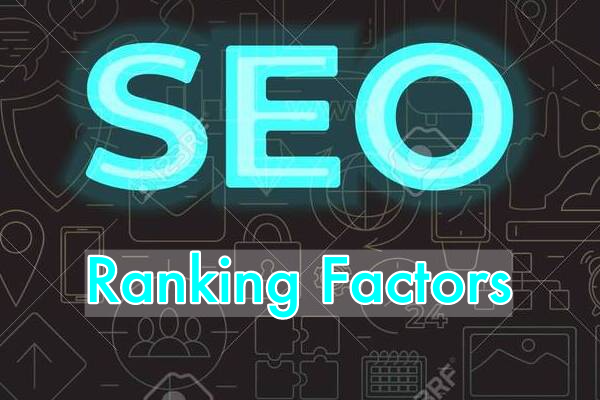
There are hundreds of different ranking factors that search engines use to decide which page ranks on top. The algorithms are changing all the time and Google & Co update their ranking factors and their specific importance a few times a day.
Next to these small adjustments, Google is regularly publishing bigger updates that sometimes change a website’s ranking and traffic completely.
To know how to optimize a website for Google you need to know what their ranking factors are first. So let’s take a deeper look at the most important ranking factors.
Website Health
Search engines regularly scan all of their indexed websites and do a bunch of tests to find out what they’re about and how high their quality is. During this Google checks if a website is “healthy” or not.
Examples for factors that make a website unhealthy are slow loading speed, broken links that lead to 404 pages, links that lead to redirects and more technical problems a website might have.
Google doesn’t want to provide its users with slow or broken websites. This is why website maintenance is a really important task even if it comes to search engine optimization.
Website Safety
Another important point is the safety of a website. As a search engine’s goal is to provide its users with the best results it doesn’t want to send them to unsafe websites.
If you don’t want to hurt your rankings, you should install an SSL certificate on your website (https://) and make sure you have a firewall installed as well. If you get malware on your website and Google finds out, it might punish your website for that.
Mobile Friendliness
Mobile searches are part of a trend that grows more and more. Meanwhile, almost everyone has a smartphone and they’re getting super fast and easy to use. That’s why people mostly use their phones to surf the internet.
As a result of this, mobile-friendliness has become one of the most important ranking factors. If you want to set up a website that attracts users for the long-term, you have to start with thinking mobile-first.
Domain Age
Multiple tests made by big companies like Ahrefs & Co have shown that Google prefers websites that are long in the game and ranks them higher.
That’s why domain age can be an important ranking factor that no SEO agency can help you with. Still, there are more than enough ways for a website to convince search engines.
Content
Content is probably the most important ranking factor. There are many factors that matter in the area of content. What matters here is the quality of the content, if it fits the search intent of the user, the content length, how it’s structured and many other small factors.
User Experience
The goal of a search engine is to provide its users with the most relevant search results and give them the best possible user experience during that. But how can search engines make sure that users have an outstanding user experience?
Basically with data. There’s lots of data that Google can collect. One example is how long a user stays on a website. If someone clicks on a search result and stays there for many minutes, Google knows that the website offers valuable information and good content the users are willing to read.
Another point is the bounce rate. If a user is searching for a specific term and clicks a search result but then leaves the website pretty early to find a better result, Google knows that this page didn’t provide the user with what he was looking for.
Backlinks
Backlinks are the most important part of Off-Page optimization. So what are backlinks? A backlink is a link from one website to another. If your website is example.net and forbes.com links one of your articles on their website, then this is called a backlink.
Google uses backlinks as one of its most important ranking factors. If a website has many links from authoritative websites, it’s a sign for search engines that this website is relevant and from high quality – otherwise other websites won’t link to it, right?
There are many things to consider when it comes to link building, as if it’s done wrong it can actually hurt a website’s ranking or result in a penalty by Google.
Internal Links
Next to other websites linking to yours, it’s also important that you link to your website yourself! If a page or an article has many incoming links by your own website, it shows that this page/article is relevant.
On the other hand, if your website contains an article that doesn’t have any internal links it seems pretty irrelevant. Either this article isn’t really in your area of expertise so you don’t really have the chance to link it in other places of your website or the article is simply not good so you don’t link to it.
That’s why you can boost specific articles and improve their rankings with a better interlinking structure.
Social Media
If you take a look at all these ranking factors, you can see that they’re all about finding out which piece of content has the highest relevance and quality. Another way to find that out are social signals.
If an article is shared thousands of times on social media, it’s definitely a sign that it’s from high-quality, otherwise other people won’t share it so often. This is a bit similar to link building, but it’s pretty clear that backlinks from websites have a much higher importance for a website’s ranking than links from social media.
But you shouldn’t forget about social media and at least create some social media accounts for your website, where you regularly share some posts. Next to more relevance for your website, it will result in more website visitors coming from social media.